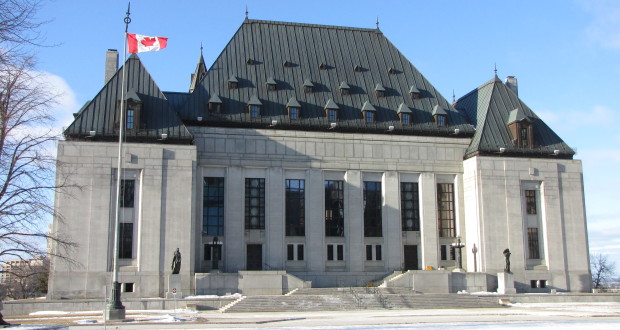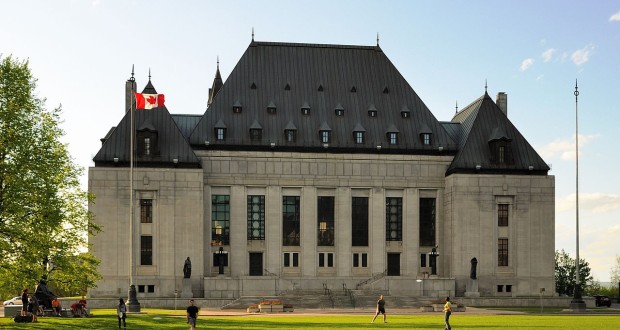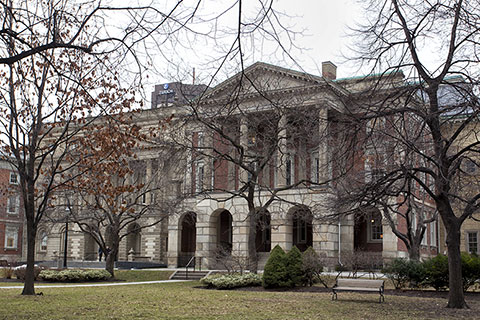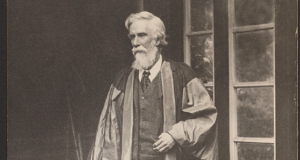So here we are, on the penultimate day of 2019. When this year began, I was not at all optimistic that the state of administrative law would improve with Vavilov’s release. But now I’m writing a third blog post on my gratitude! So never say surprises cannot happen… 14) Most alarming interpretations of Newfoundland Nurses repudiated. The Supreme Court’s decision ...
Read More »Case Commentary
20 Things to Be Grateful For as Administrative Law Enters the 2020s – Part II
On Monday, I began the expansion of my list of twenty important – and positive – lessons from last week’s Vavilov decision. Now, I continue… 8) Access to justice can be facilitated by either reasonableness or correctness review depending on the circumstances. Defenders of reasonableness review frequently defend it on the basis that it facilitates access to justice. This is ...
Read More »20 Things to Be Grateful For as Administrative Law Enters the 2020s
Humans often don’t evaluate an experience in light of how good it is, but rather against how much it met/failed to meet/exceeded our expectations. And on that front, the Supreme Court’s decision in Minister of Citizenship and Immigration v Vavilov delivered in spades. After years of lamenting administrative law decisions coming from the Supreme Court, we have what looks like ...
Read More »Vavilov: A Step Forward
Today, the Supreme Court of Canada released its decisions in Vavilov and Bell/NFL. I have previously summarized the facts of these cases and analyzed them here (Vavilov) and here (Bell/NFL). Overall, today’s decisions (a 7-2 decision, Abella and Karakatsanis JJ concurring in result) are a net positive for the law of judicial review in Canada. The Court has done a ...
Read More »Toronto v Ontario: Correcting Results-Oriented Reasoning
It is not often that I can write a post in full agreement with a judicial decision. Perhaps this says something about my constitution. No matter, the Court of Appeal for Ontario’s recent decision in Toronto v Ontario is an admirable decision that strikes all of the right notes when it comes to interpreting overlapping Charter rights and the use ...
Read More »R. v. Stillman: A Missed Opportunity for Guidance on Stare Decisis
On July 26, 2019, in R. v. Stillman, 2019 SCC 40,the Supreme Court of Canada held by a 5-2 majority that a member of the Canadian Forces does not have the right to trial by jury for a “civilian” criminal offence for which they are charged under the National Defence Act (the “NDA”). Section 130(1)(a) of the NDA converts any ...
Read More »Losing Rights in the Balance
Back in 2008, the College of Physicians and Surgeons of Ontario (CPSO) issued a new policy entitled “Physicians and the Ontario Human Rights Code.” That policy informed physicians that they should be prepared to “set aside their personal beliefs” in providing healthcare. It warned that the Human Rights Code has no defence for discriminatory refusals of medical services, “even if the refusal is ...
Read More »The Political Consequences of Deference are not Always the Same
In my last post on this blog, I commented and mostly praised two recent blog posts at Double Aspect by Mark Mancini from earlier this month calling for less deference to administrators in judicial review, unless a statute explicitly calls for such deference. But after I began drafting my response, a new development arose that now calls for a brief ...
Read More »The “Return” of “Textualism” at the SCC?
Under the so-called “modern approach” to statutory interpretation, courts are instructed to take into account the text, context, and purpose of a statute. But perhaps because the “text, context, and purpose” recital is so commonplace, other difficult interpretive questions are masked under its patina. For example, which takes priority—text or purpose? The Supreme Court has said that clear text is ...
Read More »Ontario Court of Appeal Underscores the Importance of Adversarial Argument
Last week’s unusual Ontario Court of Appeal decision in Welsh v Ontario made headlines as the Court quashed an order that $1.5 Million dollars be paid to a charity. The facts of the case make the result a bitter pill to swallow. But despite this result, and the unusual statutory and factual matrix in which the case emerged, the decision ...
Read More » Advocates for the Rule of Law
Advocates for the Rule of Law



















